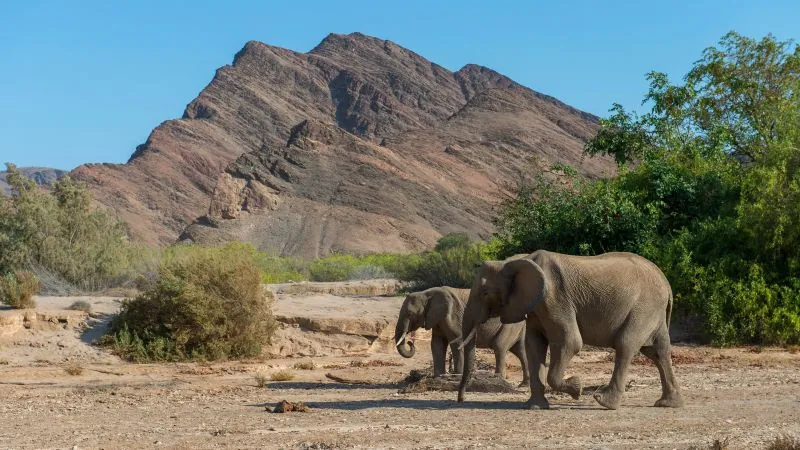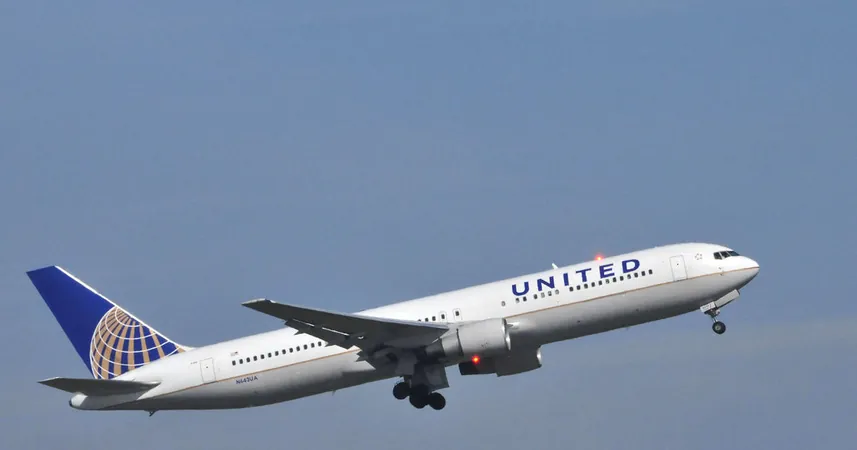
Controversy Erupts as African Nations Consider Cull of Elephants in Drought Crisis: Is There a Better Way?
2024-10-12
Author: Ling
Introduction
In an alarming twist, leaders in southern Africa are advocating for the culling of hundreds of iconic wild animals, including elephants, as a desperate measure to combat the devastating effects of an unprecedented drought. With food insecurity skyrocketing, the need for immediate solutions has led Namibia and Zimbabwe to announce controversial plans to kill large numbers of wildlife.
Details of the Culling
In August, Namibia revealed it would cull 723 animals, which includes 83 elephants, 30 hippos, and 300 zebras, while the following month, Zimbabwe sanctioned the slaughter of 200 elephants. These drastic measures are ostensibly designed to alleviate hunger among the region's population and reduce pressure on dwindling land and water resources. The governments argue that as animals venture into human settlements in search of food, such a culling would minimize potential conflict.
Backlash from Conservationists
However, this decision has ignited a fierce backlash from conservationists and animal rights advocates, who denounce the practice as not only cruel but also shortsighted. Critics argue that the cullings could set a dangerous precedent for wildlife management and further jeopardize the already vulnerable populations of these animals.
Trophy Hunting Controversy
Adding fuel to the fire is Namibia's decision to offer some of its elephants for trophy hunting, a practice where wealthy tourists pay substantial sums to hunt animals. This has provoked further scrutiny and raised questions about the governments' true motivations. Supporters of the cull maintain that these concerns reflect a misunderstanding of conservation practices and, in some cases, a form of racism—accusing critics of valuing wildlife over the lives and welfare of local communities.
The Drought Crisis
The drought plaguing southern Africa is catastrophic. With failing crops and dying livestock, nearly 70 million people are facing severe food shortages. Zimbabwe declared a national disaster as early as April, and Namibia followed suit with a state of emergency in May, as roughly half of its population confronted extreme food insecurity levels. Climate scientists point to the El Niño phenomenon, coupled with climate change caused by human activity, as key drivers of this ongoing crisis.
UN Observations
Elizabeth Mrema, deputy executive director of the United Nations Environment Programme, remarked, “We are witnessing an unprecedented increase in droughts,” emphasizing the significant suffering this brings to both people and wildlife. Supporters of the culling argue that utilizing science-based, sustainable methods for harvesting wildlife could be viable. Both Namibian and Zimbabwean officials assert that the culls are not a threat to the long-term survival of the species involved. They argue that reducing numbers will ultimately protect the remaining wildlife amid dwindling resources.
Arguments for Humane Culling
Chris Brown from the Namibian Chamber of Environment argues that the culling will be conducted humanely, stating that professional hunters will shoot the animals in a way that ensures quick and painless deaths. However, this rationale has done little to quell the outrage. A group of 14 anonymous African conservationists warns that courting trophy hunters raises concerns around motivations, calling the practice "misguided."
Human-Wildlife Conflict
Elephants, although spectacular, present serious challenges for communities living near their habitats. As evident in Namibia, where the elephant population stands at around 21,000, some regions are overrun with these large mammals, leading to crop destruction and increased human-animal conflicts.
Criticism of Overpopulation Claims
Opponents of the culling question the narrative of overpopulation, arguing that claims of an elephant surplus overlook the complex dynamics of elephant migration across borders. Critics like Farai Maguwu of the Centre for Natural Resource Governance argue that the calls for culling could stem from flawed data, particularly with reports indicating a decline in elephant sightings in certain safari areas.
Ecological Concerns
Worse yet, the animal killings may disrupt the fragile ecological balance, worsening human-wildlife conflicts instead of alleviating them. Megan Carr, a senior researcher at the EMS Foundation, characterizes the proffered solution as "misguided and cruel," pointing out that killing elephants will do little to solve the underlying hunger crisis faced by millions.
Concerns of Setting a Precedent
As drought conditions worsen and become more frequent due to climate change, many conservationists express concern that culling sets a troubling precedent, potentially leading to wider acceptance of wildlife killings under the guise of conservation.
Government Response
Amidst the ongoing debate, Namibian government spokespersons argue that critics fail to recognize the suffering of both people and wildlife in the region. They emphasize that similar culls have occurred in Western nations and assert that differential treatment of African countries in discourse is an expression of colonial attitudes.
Conclusion
As this dramatic situation continues to evolve, the pressing question remains: is there a more humane and effective solution to the intertwined crises of drought, wildlife conservation, and food insecurity in southern Africa? The plight of both the region's people and its majestic animals hangs in the balance, casting a long shadow over the future of conservation efforts worldwide.



 Brasil (PT)
Brasil (PT)
 Canada (EN)
Canada (EN)
 Chile (ES)
Chile (ES)
 España (ES)
España (ES)
 France (FR)
France (FR)
 Hong Kong (EN)
Hong Kong (EN)
 Italia (IT)
Italia (IT)
 日本 (JA)
日本 (JA)
 Magyarország (HU)
Magyarország (HU)
 Norge (NO)
Norge (NO)
 Polska (PL)
Polska (PL)
 Schweiz (DE)
Schweiz (DE)
 Singapore (EN)
Singapore (EN)
 Sverige (SV)
Sverige (SV)
 Suomi (FI)
Suomi (FI)
 Türkiye (TR)
Türkiye (TR)